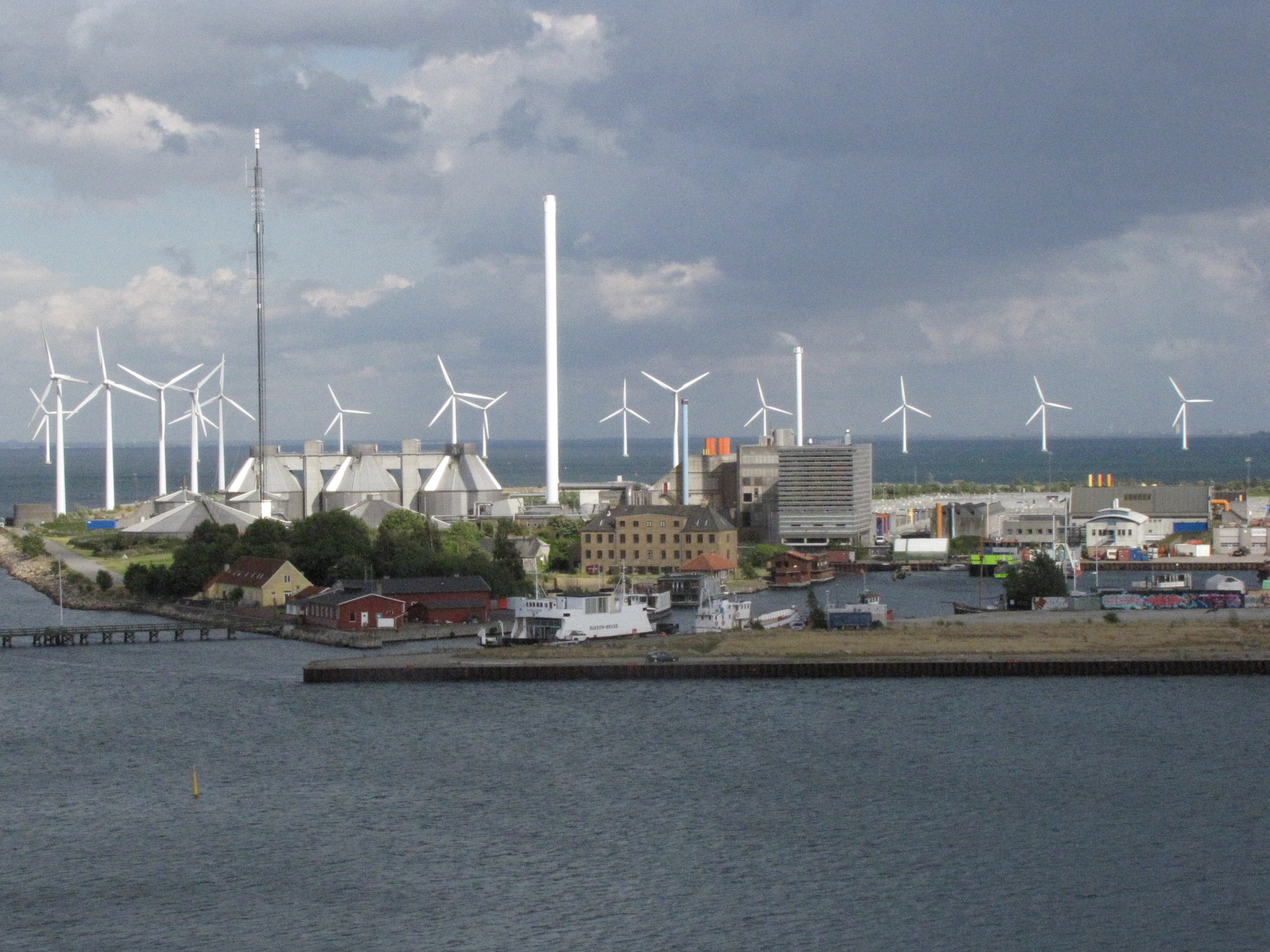
It's about a three-hour drive on the highway from the port town of Warnemunde in the old East Germany to Berlin. There's not much to see, with mostly flat, rural countryside and non-descript buildings. Cars zoomed past our little bus at speeds highly illegal in the U.S. The only exception to the boring trip is a stunning display of the future of energy production.
My wife and I, on our first-ever cruise, made the trek from our ship to see Berlin. But as impressive as the memorial to the six million slain Jews and the Reichstag and the Potsdamer Platz are, one feature of that trip stands out above all the others -- the wind farms. At first there was one, of about a dozen or more turbines, then another, and then another. They soon went from being curiosity of the landscape to a feature of the landscape.
I confess I didn't count them at the time, but there must have been close to a dozen. And that was just the first glance. Our tour guide said he thought Germany received about 25 percent of its power from wind. It turned out that he was less accurate on that statistic than on some other information he gave us, but the fact that he was on the high side is telling. Wind power is a fact of life in other parts of the world; it remains a curiosity here, although the future could be bright.
The encounter with the wind turbines in Germany, on land, was only one of the times we saw them. They were in the Netherlands, near Amsterdam. They were in Copenhagen, Denmark. And they were out to sea. During our cruise through the Baltic Sea, we saw far more wind turbines than we did offshore rigs. Of course, that's a false equivalence. The platforms are far more expensive and complex than a gathering of wind turbines. But the wind presence was a strong out to sea regardless.
In the U.S., politicians haven't awakened to the power of the wind. The domestic industry is teetering, waiting to see if a crucial income tax credit survives Congressional deliberations. Meanwhile, Republican presidential nominee Mitt Romney shoved renewables out of the way in his new energy plan, concentrating instead on traditional oil and gas while promising energy independence. We understand the politics of this and of the support for the GOP by Big Oil. But the support for wind and solar isn't mutually exclusive of continued obedience to the Oil Patch.
U.S. politicians have been promising energy independence since the days of Richard Nixon following the second oil embargo. It hasn't happened, and it won't happen unless the thrall of the oil and gas industries is broken. The Senate in March defeated a plan to repeal tax credits for the most profitable companies in the history of the world (OK, perhaps a slight exaggeration) and extend subsidies to give renewable some breathing room. The vote was 51 to 47, nine votes short of the perpetual-filibuster rules under which the Senate acts. Democrats Mary Landrieu of Louisiana and Mark Begich of Alaska, both members in good standing of the Senate Oil Patch Club, voted no, as inexplicably did Ben Nelson of Nebraska and Jim Webb of Virginia, both retiring this year.
Let's face it. If we want to get serious about energy independence, the thinking has to be bigger. To his credit, Maryland Gov. Martin O'Malley's signature legislation to establish wind farms off of the Atlantic Coast would start to move the process along. Despite some good endorsements, the bill failed in 2012 but should come back in the 2013 legislative session.
The bill, however, is too narrow. Instead of merely establishing wind farms off of the Atlantic Coast, the governor should put for wind farms to be part of the landscape as they are in Europe. Put them in Baltimore Harbor, as they are in Copenhagen Harbor, like in this photo I took.

Obtain rights-of-way from the Federal government and allow them to be built along Interstate Route 70, from Frederick to the West Virginia Border. Other states could allow turbines to be put in New York harbor and in Miami, Houston, San Francisco and Seattle.
Or, following the path of the Tennessee Valley Authority and the Bonneville Power Authority, the Federal government could build its own and sell off the power while building a market. The goal of a Federal Wind Power Authority would be to make certain that wind power becomes as much of the landscape here as it is overseas. Every time someone sees a wind turbine, they think about one less barrel of oil imported from overseas and one more good job created here. For the present, European companies are far ahead of us. We don't have the same large market, yet. But we could if there was more dedication to renewables by everyone, including the oil bidness. They do just enough now to say they are involved in renewables, but there is a lot of room for improvement to make certain "energy independence" becomes more of a reality than a perpetual political slogan.
Note: Just for the record,this post has nothing to do with Public Knowledge, my day job employer.